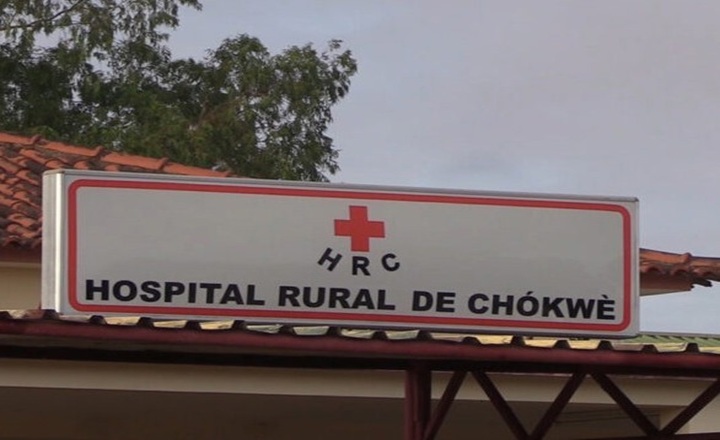
Yellow card to Mozambique's predatory banks

BCI and Milennium BIM, the faces of the immoral behavior of the financial sector
In a country where survival is a daily struggle, where unemployment is rampant and the State has shown itself incapable of offering structural responses to the social and economic crisis, it would be reasonable to expect commercial banks to present themselves as allies of the people, as drivers of financial inclusion and development. But what we see in Mozambique is the opposite. The banks, particularly BCI and Millennium BIM, behave like true institutional predators, digging tooth and nail the gap between the financial system and ordinary citizens.
Almost silently, covered by a cloak of “internal procedures” and “security and compliance reasons” that no one can truly decipher, these banking institutions decided to impose severe restrictions on financial transactions abroad, with a direct impact on the thousands of Mozambicans who, every day, cross the border into South Africa in search of sustenance.
These citizens, mostly small and medium-sized traders, sustain the domestic market with goods ranging from food, clothing, school supplies and medicines to heavy machinery and vehicles. They are the true drivers of national trade and, paradoxically, they are also the ones who suffer most from the elitist and technocratic stance of the banks, which decided, for example, to reduce the maximum value permitted for transactions in South Africa to 5,000 meticais, an amount that, in light of the reality of cross-border trade, is not even enough to cover transport costs. An unprecedented aberration, promoted by a bank that claims to be commercial. Tragicomic.
This ridiculous amount is not just a limitation. It is an institutionalized disdain. A symbolic gesture that tells the citizen: “we don’t want you to succeed”. It is a true insult to the efforts of those who, without access to formal employment, have found in informal trade the only way to feed their families.
And as if the arbitrary limits that are out of step with economic reality were not enough, the banks went even further: they blocked, without prior warning, access to bank accounts for international use. Such action has the same effect as a confiscation, interrupting the business cycle, preventing payments, breaking contracts and, even more seriously, eliminating the only source of income for many parents, condemning them to poverty without appeal or redress.
Hypocrisy and institutional disconnection
Banks claim risk. They talk about security. They talk about international standards. But they forget that customers are not asking for favors: they are using their own money. And they do so out of necessity, because border legislation already limits the circulation of cash and the South African authorities themselves expressly advise the use of electronic means of payment to avoid seizures and legal problems. But how can you use banking platforms if Mozambican banks sabotage their operations?
It is legitimate to ask: who do banks serve? Certainly not the poor. Certainly not the merchants who supply the markets, who dress the neighborhoods, who guarantee access to products and services in a country that systematically depends on imports to survive.
Meanwhile, the elites, big businessmen and politicians in power continue to move fortunes without any hindrance, cheating the system with the tacit support of the same institutions that refuse to transfer the equivalent of 100 dollars to a trader in Zimpeto, Boane or Beira.
The informal sector as an axis of national survival
It is widely recognized, including by international organizations, that the informal sector represents the main alternative to structural unemployment in Mozambique. It is a resilient, creative sector, and vital for social cohesion. However, instead of support policies, it encounters institutional obstacles and bureaucratic persecution, as if informality were a crime, and not a symptom of the failure of the national economic model.
What banks are doing by limiting transactions is the same as closing the doors of the only hospital in a poor neighborhood just because the patients don’t have health insurance. It is an institutional brutality that pushes even more people into despair, into illegality and, ultimately, into the collapse of the social fabric.
Yellow card with a taste of red
This editorial is a public yellow card to BCI, Millennium BIM, and all banks that follow the same path of dehumanizing financial services. It is also a wake-up call: either banks become allies of economic reconstruction, or they will lose their legitimacy with the people once and for all.
We cannot continue to accept institutions that thrive on the suffering of others, that grow rich through exclusion and that act as outposts of underdevelopment. It is no wonder that Mozambique is at the bottom of international development and competitiveness rankings, such as Doing Business. With predatory, disjointed policies that are disconnected from national reality, no country can rise up.
It is time to demand more. It is time to demand banks that serve the people. That promote inclusion, that finance development for those most in need with sustainable interest rates. That understand the real economy. That are up to the daily struggle of Mozambicans.
Outras noticias

Society
19-year-old woman arrested for kidnapping newborns at Chókwe Rural Hospital
2026-01-08

Society
Tension in Salamanga: Conflict between the Community and Rangers of the Maputo Reserve
2026-01-08

policy
YELLOW CARD NO. 1 OF THE YEAR: BETWEEN PROMISES, POPULISM AND THE URGENCY OF NATIONAL PRIORITIES
2026-01-08

policy
YELLOW CARD FOR THE FIRST PRESIDENTIAL REPORT: NARRATIVE ARROGANCE, SYSTEMIC CONTINUITY, AND THE WASTE OF A FIRST YEAR OF HOPE
2025-12-25

Society
Intaka-Boquisso road floods after inauguration, leaving residents outraged
2025-12-25
Copyright Jornal Preto e Branco All rights reserved . 2025